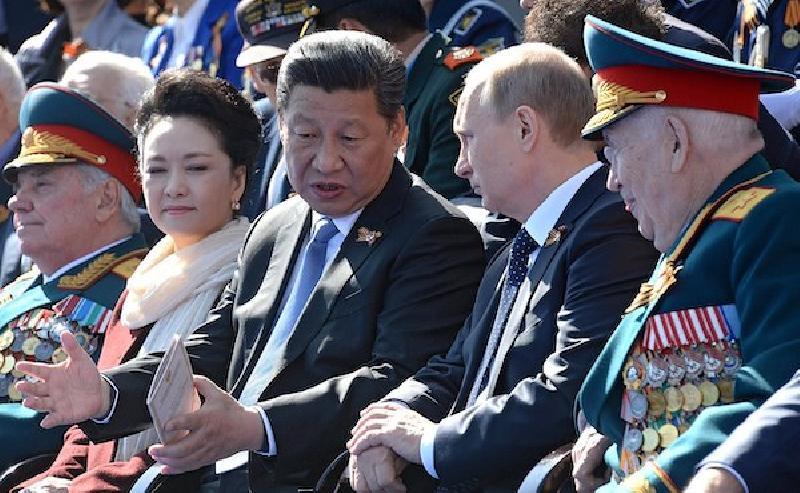With three strongman leaders of unstable, nuclear-weapon nations, “there has never been a more dangerous moment in history,” warns a prominent China watcher.
Gordon G. Chang, a senior fellow at the Gatestone Institute who spent nearly two decades in Mainland China and Hong Kong, pointed in a video interview with WND (embedded below) to Xi Jinping of China, Kim Jong Un of North Korea and Vladimir Putin of Russia.
“Some of us remember the Cuban Missile Crisis of 1962 or the Checkpoint Charlie Crisis of 1961 in Berlin,” he said. “They look, on the surface, to be more dangerous. But we know from the archives that neither Khrushchev nor Kennedy were willing to use their most destructive weapons.
“We don’t know that about three individuals right now,” said Chang, who has given briefings at the National Intelligence Council, the Central Intelligence Agency, the State Department and the Department of Defense, and testified before the House Committee on Foreign Affairs.
“All three of them have been making threats – first strike threats – with their nuclear weapons, both strategic and tactical,” he said.
“This moment, where we see the Russians desperate, where we see the Chinese political system in distress, where we see a North Korea that is quite fragile – these leaders have incentives to do things that could take us by surprise.”
Chang noted that one month ago, Biden warned during a closed Democratic fundraiser that the world is at risk of a nuclear “Armageddon” if Russia deploys tactical nuclear weapons in its war against Ukraine.
“I think that’s important for him to say that,” Chang said of Biden. “But it’s more important for him to say that to the entire American people.”
Xi not only is engaged in the largest military buildup since the Second World War, he also has chosen what is now called his “war cabinet” at the 20th National People’s Congress last month, where he was elected to an unprecedented third term as chairman of the Communist Party.
“And maybe most ominously,” Chang said, “he is getting the Chinese people mobilized for war.”
Biden, he said, needs “to have those honest conversations with the American people, so we can understand the urgency of this, what’s at stake.”
“This is one of those moments that China can do something that our leaders just do not expect.”
Chang said he “definitely” sees national security implications stemming from the Biden family’s deals with Communist Party-run Chinese companies, including CEFC China Energy, which is part of Xi’s “Belt and Road” infrastructure initiative to spread Beijing’s power globally.
Explaining how China views the relationship with the Bidens, Chang recalled a lecture just after the 2020 election by a Beijing professor tied to the regime who cited the Hunter Biden business deals. The professor spelled out why he though a Biden administration would restore the communist regime’s influence on its “old friends” on Wall Street and inside the Beltway after it was throttled by President Trump.
Chang is the author of “The Coming Collapse of China” and “Nuclear Showdown: North Korea Takes on the World.” In the first book, published in 2001, he predicted that China would collapse in a decade. He told WND there were a number of unforeseen reasons why that didn’t occur, including the 2008 economic downturn, which “scrambled geo-politics” and “gave life to the Chinese regime.”
To get through 2008 and avoid a downturn, China “embarked on perhaps the most massive stimulus in history” through government spending while the rest of the world more or less “took their medicine.”
“But what’s happened now is that China’s economy is exhausted. There’s just too much debt. They can’t pay it back,” he said.
Meanwhile, Xi has become more powerful than Mao, Chang said.
“Xi Jinping, right now, looks like he has nobody – nobody – to contradict him.”
Chang warned of American politicians and business leaders who want to continue to “accommodate” China.
“Accommodation sounds like a nice idea, but unfortunately, in this context, it could lead to the loss of our republic.”
See the WND interview with Gordon Chang:

